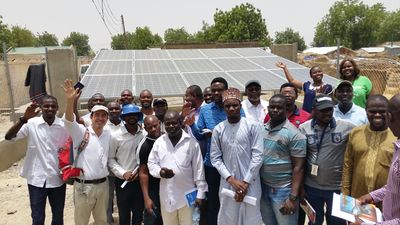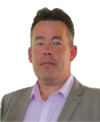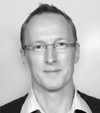Capacity Building and Learning on Solar Powered Water Systems
|
Webinar Series: Capacity Building and Learning on Solar Powered Water Systems |

Oxfam and IOM with funds from USAID’s Bureau of Humanitarian Assistance is implementing the Global Solar and Water Initiative (GLOSWI) project whose overall objective is to improve cost efficiency, reliability and sustainability of water access for displaced populations and affected host communities by effectively mainstreaming the use of solar water pumping technologies. One of the key objectives of this initiative is to strengthen knowledge on solar water pumping solutions among humanitarian WASH actors and develop capacity building options and technical support, with a focus on hard-to-reach places and first phase humanitarian emergencies. This will ensure emergency WASH actors have access to training opportunities and relevant information/materials and technical support.
Thus, this four-part webinar series, organized jointly by GLOSWI and energypedia will focus on solar powered water systems (SPWS) to raise awareness and to build technical capacity of humanitarian WASH actors as well as other development organizations.
Webinar I
Solar Powered Water Systems in Humanitarian Context – Types and Configurations
Webinar Recording
With falling panel costs and improvement in technologies, solar powered water systems (SPWS) have become a cost-effective and sustainable way of providing water in long-term displacement settings such as IDP camps as well as in host communities. This webinar, the first of the four-part webinar series, will introduce the SPWS technology focusing on different configurations such as DC vs AC, standalone vs hybrid, and submersible vs surface pumping. Lorentz and Grundfos will highlight their SPWS solutions available in the market as well as their applicability in the humanitarian context. A case study will then showcase SPWS examples from around the world.
Download the presentations
Q&A
Questions asked during the webinar.
Additinal Resources
- Recommendations on Water Supply System Design.pdf
- Podcast: https://www.buzzsprout.com/1435756/episodes/6471607
Speakers
 |
Asenath Kiprono, Oxfam Asenath is a Water and Solar specialist working with Oxfam, managing the Global Solar and Water initiative, a project that supports agencies towards adoption of quality solar powered water supply solutions through field assessments, technical workshops as well as development of knowledge material and tools. She holds a bachelor’s degree in Civil Engineering from the University of Nairobi and previously worked in the private sector developing and implementing suitable water supply and energy solutions for a wide range of stakeholders. | |
 |
Adrian Honey, Head of Marketing, Lorentz
After studying electronic engineering followed by business administration, Adrian Honey spent 20 years working in the IT and Communications industry in various product management and global marketing management roles for multinational companies. Since joining LORENTZ in 2011 Adrian has been working on expanding the global LORENTZ partner network, marketing and sales activities and partner support programs such as partner portals and training. In addition to looking after marketing for LORENTZ Adrian is working on building sustainable water infrastructure, alternative business models, humanitarian sector and specialist applications for pump technology. Solar pumping and associated technologies are a very fast-growing business segment with very clear customer, partner and wider social benefits that Adrian is always very excited to talk about. | |
 |
Jakob Normann Olesen, Global Product Specialist based in Denmark, Grundfos A/S Mr. Olesen has worked at Grundfos for 20+ years and as Global Product Specialist within Solar Water solutions in the last 9 years. He started as trainee in Electronic development, and was part of the team developing and maintaining VFD’s and controls for submersible pumps. A small break from Grundfos during 2002 to 2005 when he worked as calibration technician in a nuclear power plant in Sweden. When returned, he worked as product technical responsible within the submersible controls and built-in VFDs, supporting the production and helping customers. | |
 |
David Githiri Njoroge, Technical Coordinator, Uganda, United Nations High Commission for Refugees (UNHCR)
David Githiri Njoroge has over 17 years’ experience in Water and Sanitation Sector in humanitarian and development contexts. Currently working with United Nations High Commission for Refugees (UNHCR) heading the Technical Unit in Uganda. He leads a team of experts coordinating service delivery for refugees and hosting communities in WASH, Public Health, Shelter, Site Planning, Environment and Energy sectors. He has been instrumental in piloting sustainable service delivery models, anchored in Government of Uganda (GoU) national systems and leveraging on emerging opportunities aligned to the Global Compact for Refugees (GRF). Previously, he worked as a WASH expert extensively in the East and Horn of Africa Region (Ethiopia, Sudan, Uganda & Kenya) with Norwegian Church Aid, GOAL Ireland and ACF-USA. He coordinated diverse technical teams and implemented various projects towards delivery of humanitarian WASH assistance to forcibly displaced populations. He worked with ZamConsult Engineering Consultancy firm designing and supervising various projects. He holds a Master’s degree in Environmental Engineering and a Bachelor’s degree in Civil Engineering from the University of Nairobi. He is an alumni of the UNHCR Innovation Fellowship. |
Webinar II
Making Sense of Solar Powered Water Systems Expansion
January 2021
This webinar will discuss topics such as retrofitting solar into existing water schemes, over-pumping of acquirers and life cycle cost analysis of solar pumping schemes.
Webinar III
Specific Considerations and Limitations of Solar Powered Water Systems
February 2021
This webinar will highlight the design aspects of SPWS along with the practical limitations. It will include topics such as batteries, tank sizing, hot water pumping and an example of SPWS planning for humanitarian settings.
Webinar IV
Towards More Sustainable and Efficient Solar Powered Water Systems
March 2021
This webinar looks into the efficiency of water pumping systems and how to operate and maintain SPWS for long-term sustainability. Topics include remote monitoring, choosing quality components, O&M concepts, and loss estimations among others.
<headertabs></headertabs>
Further Resources on Solar Powered Water Systems
- The Solar Hub
- Solar Pumping Toolkit - The Global Solar & Water Initiative
- Online Solar Water Pumping training at Polytechnic University of Valencia, Spain (training language, English)
Global Solar and Water Initiative (GLOSWI) Solar Pumping Resources
- Global Solar and Water Initiative (2018). Global Solar and Water Initiative. “Summary of findings” video file.
- Global Solar and Water Initiative (2018). “Solar Water Pumping Miniguide.
- Global Solar and Water Initiative (2018). Country Briefing Case study of Bidibidi Refugee Settlement, Uganda.
- EED Advisory Ltd. (2018). “Evaluation of the sustainability of solar powered water supply systems in Kenya.” EED Advisory Ltd. Nairobi, KE.
- Global Solar and Water Initiative (2018).Emergency Solar Pumping Kits. Global Solar and Water Initiative.
- Global Solar and Water Initiative (2018). Cost analysis Generator vs Hybrid, Cost analysis Generator vs Solar, Technical Briefing - Cost Analysis.
- Global Solar and Water Initiative (2018). “Criteria for Selection of Quality Solar Pumping Products & Services” and “Solar pumping bidding template”.
- Global Solar and Water Initiative (2018). “Physical Installation checklist” and “Operation & Maintenance kit”.
GLOSWI visit reports
- Global Solar and Water Initiative (2016). “Visit Report to Assess Feasibility for Solarisation of Existing Water Points in Asosa and Shire Refugee Camps in Ethiopia, 14 th to 21 st December 2016.”
- Global Solar and Water Initiative (2017). “Visit Report – Refugee and IDP Camps in Maban, Yida and Bentiu – South Sudan, 3 rd to 20 th July 2017.”
- Global Solar and Water Initiative (2017). “Visit Report – Solar and Water Initiative IDP settlements in Darfur, Sudan – 20 th February to 18 th March 2017.”
- Global Solar and Water Initiative (2017). “Visit Report – Solar and Water Initiative. Refugee settlements in Northern Uganda. 10th January to 6th February 2017.”
- Global Solar and Water Initiative (2017). “Visit Report to Borno State Nigeria, 12th – 19th June 2017.”
- Global Solar and Water Initiative (2019). “Visit Report to Somalia Region Ethiopia, 17th Feb to 2nd Mar 2019.
- Global Solar and Water Initiative (2019). “Visit Report to Borno State Nigeria, 6th to 19th April 2019.”
- Global Solar and Water Initiative (2019). “Visit Report to Northern Kenya, 23rd to 26th April 2019."
- Global Solar and Water Initiative (2019). “Visit Report to Kurdistan Region of Iraq, 27th July to 10th August 2019.”
Other resources
- World Bank (2016). “Solar Pumping: A Cheaper and Cleaner Way to Access Groundwater.” World Bank, Washington, DC. Video file.
- World Bank (2018). “Solar Pumping: The Basics.” World Bank, Washington, DC.
- Practica Foundation (2018). “Solar Pumping for Village Water Supply Systems.” Practica Foundation.
- Bamford, E. and Zadi, D. (2016). “Scaling up solar powered water supply systems: a review of experiences.” UNICCEF, New York, NY.
- Allouhi, A. et al. (2019). PV water pumping systems for domestic uses in remote areas: Sizing process, simulation and economic evaluation.
- Global Sustainable Energy Solutions (2019). “Solar Water Pumping Systems: System Design, Selection and Installation Guidelines.” Pacific Power Association and Sustainable Energy Industry Association of the Pacific Islands.
- Practical Action (2020). Solar Pumping for Water Supply: Harnessing solar power in humanitarian and development context
Organizers




















